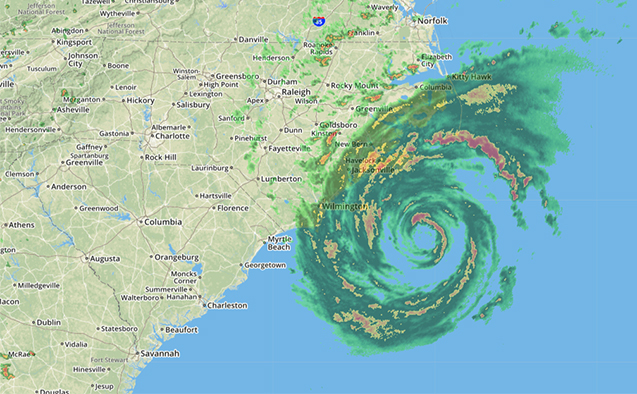Wake Forest hurricane experts available

As Hurricane Florence makes landfall on the southeastern coastline, Wake Forest University offers experts who can discuss flood forecasting, environmental hazards in the aftermath of flooding and the economics of evacuations.
Flood forecasting challenges – Chris Zarzar, a teaching postdoc in Wake Forest’s environmental studies program is working on ways to make better predictions about catastrophic flooding. Hurricane Florence has presented unique challenges to forecasters. There are numerous models used in tandem, sometimes called an ensemble prediction, and often presented as ‘spaghetti plots’ by forecasters to try and understand how well the different models agree on the future storm track. “Finding a way to communicate the range of potential flood scenarios rather than a settling on a single flood forecast scenario can help communicate the total risk that a person and their property face, and this will translate to better preparing people for both the best and the worst case scenario,” said Zarzar. Zazar is available for phone and email interviews only.
Floodwaters and Florence: Environmental hazards in the aftermath of a hurricane – Stan Meiburg, former acting deputy administrator of the Environmental Protection Agency (EPA), who is now director of graduate programs in sustainability, can discuss environmental hazards in the aftermath of Hurricane Florence. Meiburg says polluted floodwaters can pose significant challenges. He can comment on the impacts when hog waste gets into waterways. Based on his experience as an EPA administrator during Hurricane Katrina and other natural disasters, he is concerned about the pollutants in the water, in the air and on land. “This includes risks for sewage and chemical spills, and less obvious ones, such as contamination from household products and insect-borne diseases,” he said.
People with fewer economic resources tend to roll the dice in disasters – Visiting economics professor Megan Regan researches the impacts of natural disasters on consumers. She can discuss why people with fewer resources often opt to shelter in place during hurricanes, even at great personal risk. “Insurance helps smooth the catastrophic losses that can occur during hurricanes, and lower-income people do not have as much access to this resource,” said Regan. “Without insurance to protect belongings, people are afraid of damage to or theft of their possessions. They want to stay in place to protect their property. For people with hourly jobs, lost wages or a lost job are realities they face if they leave home and can’t get back to show up for work once the threat is over. On average, the lower a person’s resources, the less likely they are to evacuate.”
Categories: Experts, Research & Discovery
Wake Forest News
336.758.5237
media@wfu.edu
Meet the News Team
Headlines
Wake Forest in the News
Wake Forest regularly appears in media outlets around the world.




